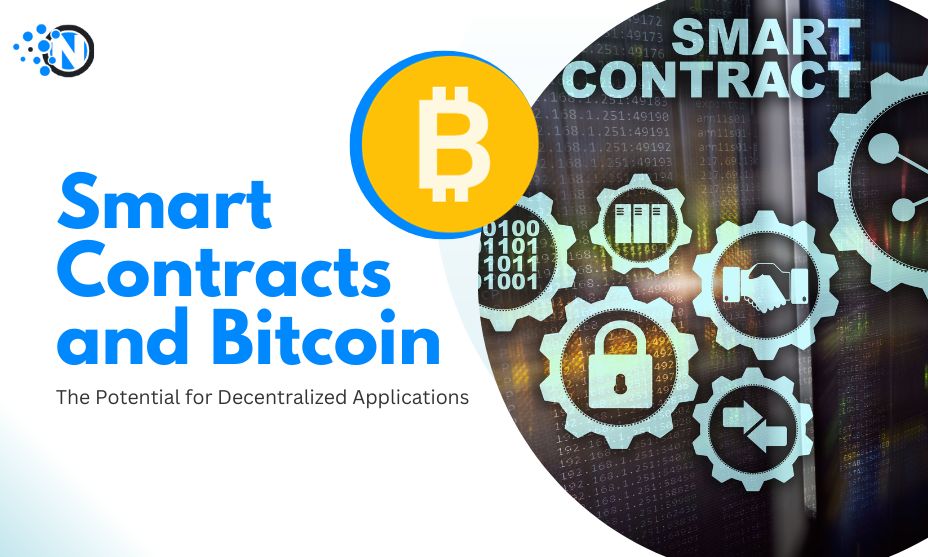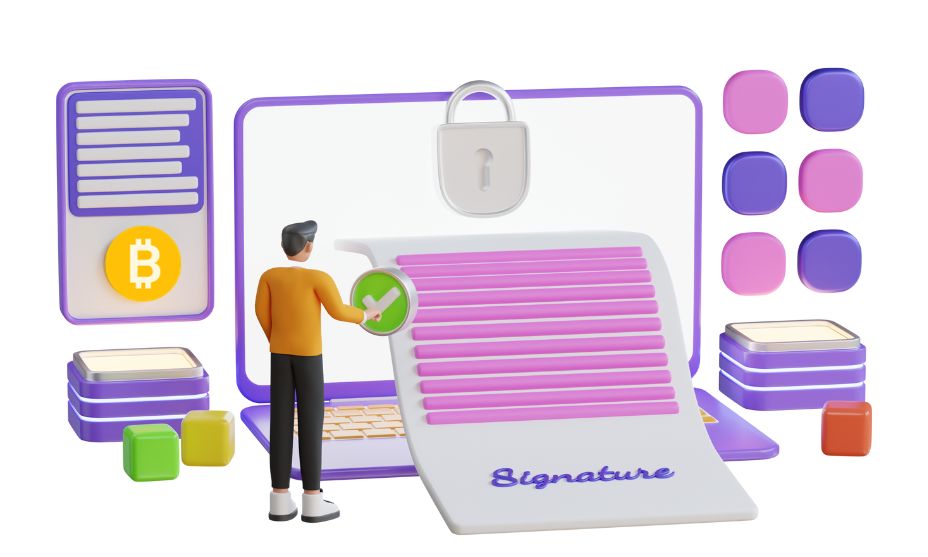Smart Contracts and Bitcoin: The Potential for Decentralized Applications

Bitcoin, the trailblazing digital currency, has played a pivotal role in inaugurating a transformative era of financial interactions, fundamentally reshaping our understanding and management of currency. Yet, its influence transcends mere transactional utility. The advent of smart contracts serves as an augmenting force, amplifying Bitcoin’s inherent capabilities and forging a path toward an expansive array of decentralized applications (DApps). These DApps can potentially disrupt industries across the board, revolutionizing not only financial transactions but also supply chains, identity verification, voting systems, and countless other sectors, thereby underlining the profound and multifaceted impact of Bitcoin’s integration with smart contract technology.
As we delve into the advancements of decentralized applications, using a dedicated app for trading bitcoin can significantly enhance your cryptocurrency experience.
Understanding Smart Contracts
Smart contracts, initially envisioned by computer scientist Nick Szabo in 1994, represent a groundbreaking innovation in contract management. These self-executing contracts embed the agreement’s terms directly into code, enabling automated transaction execution upon the fulfillment of specific predefined conditions. By obviating intermediaries, smart contracts guarantee a framework marked by unparalleled transparency, rapidity, and impregnable security, thereby revolutionizing traditional contract dynamics and opening doors to multifarious applications across industries.
Bitcoin and Smart Contracts
Although Ethereum is frequently linked with pioneering smart contracts, it’s noteworthy that Bitcoin possesses innate support for rudimentary smart contracts via its scripting language. However, the evolution of Bitcoin’s smart contract prowess has been propelled by RSK (Rootstock), which introduces an elevated level of complexity to its smart contracts. Functioning as a sidechain intricately interwoven with the Bitcoin network, RSK seamlessly amalgamates mining activities and extends the reach of smart contracts to a Turing-complete domain, unlocking a realm of possibilities that transcend traditional limitations and expanding Bitcoin’s potential impact across decentralized applications and intricate contractual arrangements.
Use Cases of Bitcoin-Based Smart Contracts
Multisignature Wallets: Bitcoin’s multisignature functionality allows multiple parties to control a wallet jointly. Businesses and individuals often use this feature to enhance security and reduce the risk of unauthorized access or theft.
Time-Locked Transactions: Bitcoin-based smart contracts can lock funds for a specified period, enforcing delayed transactions. This is useful for applications such as wills, where funds are released to beneficiaries after a certain amount of time.
Atomic Swaps: Bitcoin’s script functionality enables atomic swaps, allowing users to exchange cryptocurrencies across different blockchains without the need for intermediaries.
Escrow Services: Smart contracts can be used as escrow services, holding funds until predefined conditions are met, thus mitigating trust issues in various transactions.
Tokenization of Assets: Although less common on the Bitcoin network compared to Ethereum, smart contracts can facilitate the tokenization of assets, such as real estate, allowing fractional ownership and easier transfer of ownership.

Challenges and Limitations
Despite the potential of Bitcoin-based smart contracts, several challenges and limitations exist:
Limited Functionality: Bitcoin’s scripting language is deliberately limited, making it less versatile for complex smart contract applications compared to platforms like Ethereum. Ethereum’s programming language is Turing-complete, allowing for greater flexibility and complexity in contract design. Bitcoin, on the other hand, employs a simpler scripting language that can be viewed as more secure but lacks the same level of sophistication.
Scalability: Bitcoin faces scalability issues, which can hinder the performance of smart contracts when transaction volumes are high. Bitcoin’s block size and block time constraints can lead to congestion, increasing the cost and time required for contract execution.
Security Concerns: The limited scripting language of Bitcoin is a security feature, but it can also limit the potential applications and complexity of smart contracts. Ethereum’s approach, with its Turing-complete language, allows for more versatile but potentially riskier smart contracts. Bitcoin’s scripting language is intentionally conservative to minimize potential security vulnerabilities.
Competition: Ethereum and other blockchain platforms have become the go-to choice for developing complex DApps, leaving Bitcoin as a simpler and more conservative option for smart contracts. Developers seeking to create highly complex and feature-rich DApps typically turn to platforms like Ethereum, which offer a more robust environment for creating smart contracts.
Complex Interoperability: Interoperability between Bitcoin and other blockchains can be challenging, particularly when implementing complex, cross-chain smart contracts. This can limit the potential for Bitcoin to interact seamlessly with other blockchain networks.
DApps and Bitcoin
Decentralized applications, abbreviated as DApps, represent a paradigm shift in application architecture, functioning across a distributed network of interconnected computers as opposed to a singular entity. The convergence of smart contracts and Bitcoin ushers in a transformative era, fostering the creation of DApps that harness the intrinsic potential of Bitcoin’s robust blockchain. This fusion empowers developers to design and deploy an array of innovative and secure DApps, spanning domains from finance and identity verification to supply chain management, thereby driving forth a novel wave of digital solutions underpinned by the unparalleled transparency, immutability, and decentralized nature of the Bitcoin ecosystem.
For instance, consider a decentralized lending platform. A user can lock up their Bitcoin as collateral in a smart contract and receive a loan in another cryptocurrency. The smart contract manages the entire process, ensuring transparency and trust. If the borrower fails to repay, the smart contract automatically liquidates the collateral, protecting the lender.
The Potential of This Integration
The integration of smart contracts and Bitcoin holds immense potential. It could lead to the development of truly decentralized finance (DeFi) platforms leveraging Bitcoin’s security and liquidity. It could also enable the creation of decentralized exchanges (DEXs), prediction markets, supply chain tracking systems, and many other DApps.
Moreover, Bitcoin’s widespread adoption and recognition could potentially make these DApps more accessible and mainstream. Users who are already familiar with Bitcoin may find it easier to navigate these applications, thereby driving adoption.
Conclusion
This evolution holds the promise of streamlining processes, enhancing transparency, mitigating fraudulent activities, and minimizing operational costs. While certain obstacles must be addressed, such as scalability and regulatory considerations, the potential advantages of this convergence are substantial. From bolstered operational efficiency and heightened data visibility to the curbing of fraudulent practices and cost reduction, these developments underscore a compelling and dynamic domain that demands close attention from both industry experts and observers.




